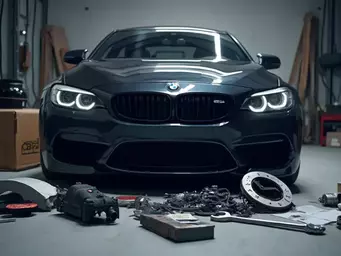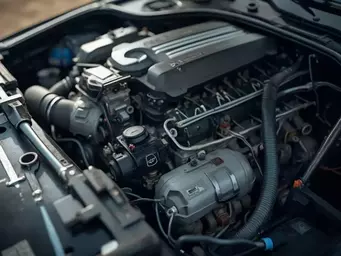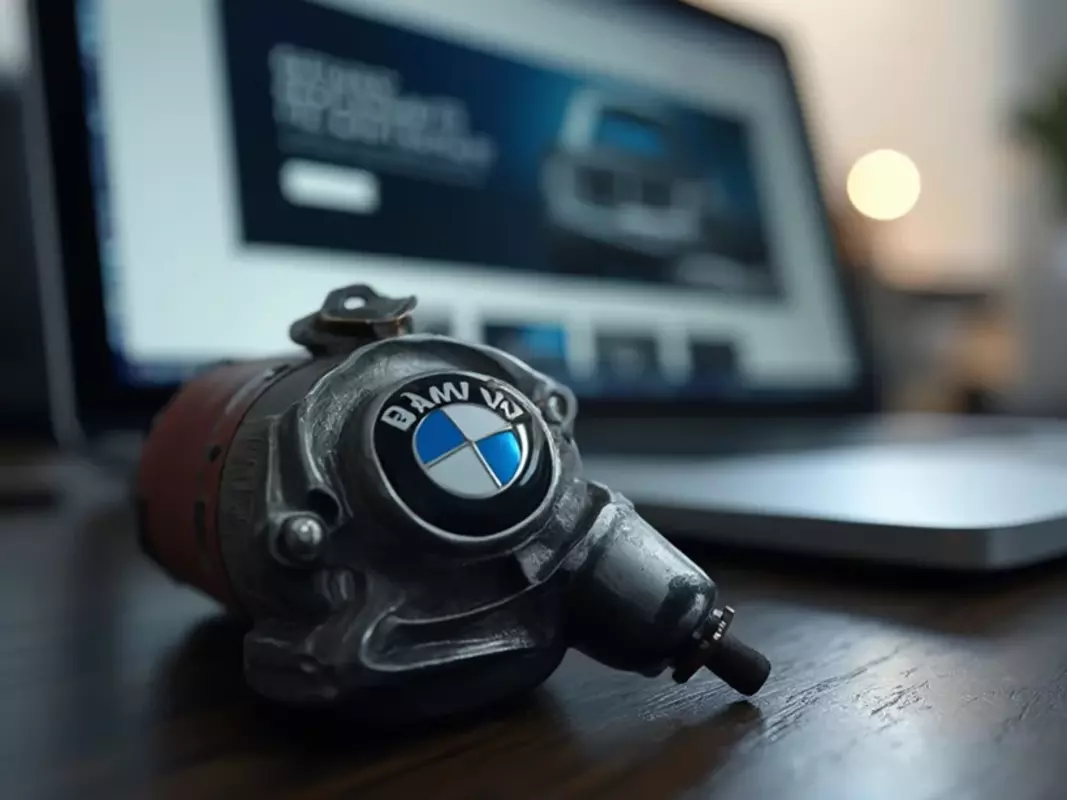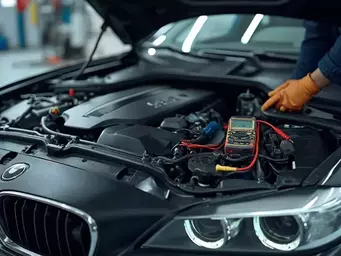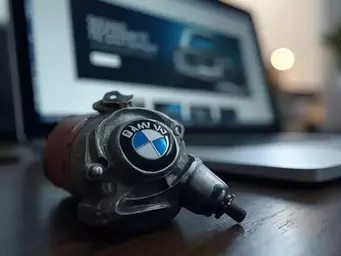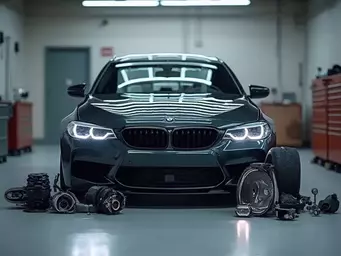Choosing BMW Replacement Parts Wisely
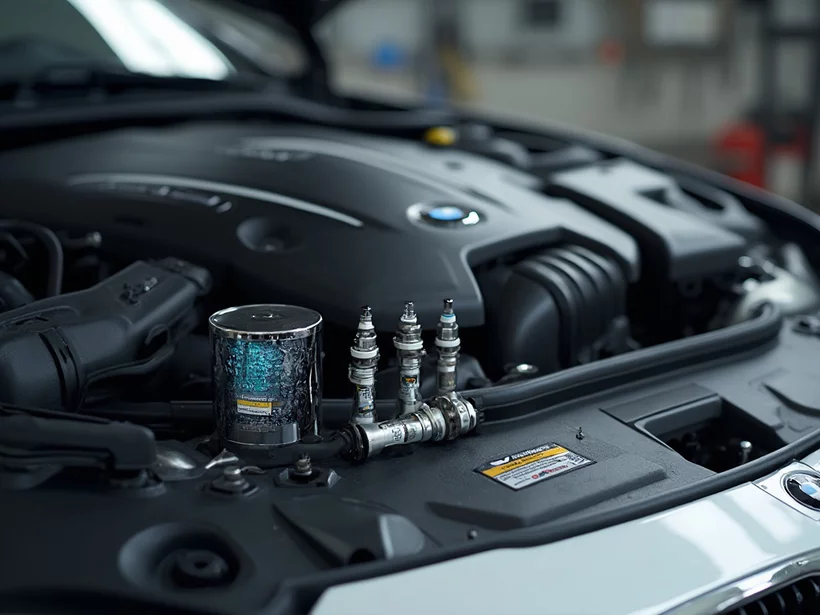
Did you know that investing in high-quality replacement parts can significantly enhance your BMW's performance and longevity? This article dives deep into the importance of material quality and best practices for maintaining your vehicle, ensuring you get the most out of your investment.
What You Will Learn
- Choosing high-quality OEM or reputable aftermarket parts improves performance and longevity.
- Material quality directly affects your BMW's durability, with premium metals, plastics, and rubber providing better resistance.
- Regular maintenance and inspections are crucial for prolonging the life of your vehicle and its components.
- Engaging with the BMW community can provide valuable insights and recommendations for parts and maintenance practices.
BMW Parts: Quality vs. Maintenance Impact
This visual highlights the critical relationship between material quality and proper maintenance in maximizing the longevity and performance of BMW replacement parts.
Why Material Quality Matters
Metals: Premium-grade resist wear and tear better.
Plastics: Durable components endure extreme temperatures.
Rubber: High-quality seals prevent leaks and reduce noise.
Key Maintenance Tips
Regular Inspections: Catch issues early.
Fluid Changes: Prevent engine wear.
Scheduled Service: Follow manufacturer's recommendations.
Understanding the Importance of Quality BMW Replacement Parts
When it comes to maintaining your BMW, the quality of replacement parts plays a crucial role in ensuring your vehicle runs smoothly and efficiently. As an automotive enthusiast and expert, I can’t emphasize enough how important it is to choose the right parts. Quality components not only enhance performance but also extend the longevity of your beloved BMW!
Many BMW owners overlook the significance of material quality, often opting for cheaper options that promise savings upfront. However, investing in high-quality replacement parts can save you from costly repairs down the line. Let’s dive deeper into why material quality matters.
Why Material Quality Matters for Longevity and Performance
Understanding the materials used in BMW parts can help you make informed choices. High-quality materials are essential for performance, as they can withstand the demands of daily driving and various weather conditions.
- Metals: Premium-grade metals resist wear and tear better than their cheaper counterparts.
- Plastics: Durable plastic components can endure extreme temperatures without losing integrity.
- Rubber: High-quality rubber seals and bushings are crucial for preventing leaks and reducing noise.
When you prioritize material quality, you’re not just ensuring the survival of your parts; you're also enhancing your driving experience. This directly impacts how your BMW performs on the road!
Exploring High-Quality Materials Used in BMW Parts
BMW uses a range of high-quality materials for their replacement parts, each chosen for its specific benefits. For instance, aluminum is frequently used in engine components for its lightweight yet robust properties, enhancing fuel efficiency without sacrificing strength. Additionally, many BMW parts feature advanced composites, which offer a perfect balance of strength and weight reduction. These materials are engineered to improve performance while ensuring they last longer than standard components. To understand the rigorous standards for automotive components, you might find information on automotive recall reports insightful, as these often highlight the importance of material integrity.
The Impact of Material Choice on Durability and Performance
The right material choice can significantly influence your BMW’s durability and overall performance. For example, high-grade brake pads provide better stopping power and reduce wear on rotors, leading to a smoother ride.
It's essential to consider how each part interacts within your vehicle's system. A quality air filter can enhance engine efficiency, while premium spark plugs improve ignition and fuel consumption. Remember, investing in quality now can prevent headaches in the future!
Maintaining Your BMW: Best Practices for Long-Term Care
Keeping your BMW in top shape requires regular maintenance and attention to detail. Following best practices not only prolongs the life of your replacement parts but also improves overall vehicle performance.
- Regular Inspections: Check your fluids, brakes, and filters regularly to catch issues early.
- Scheduled Maintenance: Follow the manufacturer’s maintenance schedule for oil changes and service checks.
- Use Quality Products: Always opt for high-quality fluids and parts when performing maintenance tasks.
By implementing these best practices, you’ll keep your BMW running like new and maintain the integrity of its components. It’s all about being proactive rather than reactive!
Key Maintenance Tips to Prolong Part Life
To ensure your parts last longer, consider these key maintenance tips:
- Stay on top of fluid changes: Regular oil changes and coolant flushes can prevent engine wear.
- Inspect belts and hoses: Replace any components that show signs of wear before they fail.
- Monitor tire pressure: Keeping your tires properly inflated can improve handling and fuel efficiency.
Implementing these simple yet effective tips can make a significant difference in the lifespan of your BMW parts. Remember, a little effort goes a long way! For a detailed guide on maintaining your BMW, the BMW Maintenance and Parts Guide offers valuable insights.
Essential Services: Oil Changes, Brake Inspections, and More
Regular services such as oil changes and brake inspections are vital to your BMW’s health. Not only do they keep your vehicle running smoothly, but they also help identify potential issues before they escalate.
Ensure you schedule these essential services at intervals recommended by your BMW's owner manual. By staying proactive about maintenance, you’ll enjoy a reliable driving experience for years to come!
Pro Tip
When considering replacement parts for your BMW, always request detailed specifications and compatibility information from your supplier. This can prevent mistakes in your purchase and ensure you get the best performance from your vehicle. Remember, a well-informed buyer is a successful buyer!
Frequently Asked Questions About BMW Parts and Maintenance
Q1: Why is material quality so important for BMW replacement parts?
A1: Material quality directly impacts the durability, longevity, and performance of your BMW. High-quality materials like premium-grade metals, durable plastics, and high-quality rubber can withstand wear and tear, extreme temperatures, and prevent issues like leaks, ensuring your vehicle runs smoothly and reliably.
Q2: Should I choose OEM or aftermarket parts for my BMW?
A2: The article emphasizes choosing high-quality OEM (Original Equipment Manufacturer) or reputable aftermarket parts. While OEM parts guarantee a perfect fit and identical performance to original components, reliable aftermarket parts can offer similar quality at a potentially lower cost. It's crucial to prioritize quality over upfront savings.
Q3: What are the key maintenance practices for prolonging the life of my BMW and its parts?
A3: Key maintenance practices include regular inspections (fluids, brakes, filters), adhering to the manufacturer’s scheduled maintenance for oil changes and service checks, and always using high-quality fluids and parts. Proactive maintenance helps in identifying and addressing issues early before they escalate.
Q4: How can engaging with the BMW community help me with parts and maintenance?
A4: Engaging with the BMW community, through local clubs or online forums, allows you to share experiences, gather valuable insights, and learn from other enthusiasts. This can provide recommendations for parts, maintenance tips, and help in making more informed decisions about your vehicle's care.
Q5: What impact does material choice have on my BMW's performance?
A5: The right material choice significantly influences your BMW’s durability and overall performance. For instance, high-grade brake pads improve stopping power, and quality air filters enhance engine efficiency. Investing in superior materials ensures better functionality and a smoother driving experience.
Summarizing Best Practices for Choosing BMW Replacement Parts
When it comes to choosing replacement parts for your BMW, it's essential to keep several key practices in mind. First and foremost, prioritize quality over cost. Although it might be tempting to opt for the cheapest option available, investing in high-quality parts will ultimately save you time and money in repairs down the line. As I've seen in my years as an automotive expert, the longevity and performance of your vehicle often hinge on the parts you choose. For a deeper understanding of the differences, consider reading about whether to use OEM or aftermarket parts.
Additionally, regularly assessing your needs based on your driving habits and your BMW's condition can lead to better decision-making. Don't forget to consult resources like BMW Spare Parts Guide for comprehensive advice tailored to your specific model!
Recap of Key Takeaways for Maximizing Longevity and Performance
- Choose high-quality OEM or reputable aftermarket parts for better performance.
- Regular maintenance is key to prolonging the life of your BMW.
- Stay informed about the latest trends and technologies in replacement parts.
- Engage with the BMW community for shared insights and experiences.
By adhering to these best practices, you'll not only extend the life of your BMW but also enhance its overall performance. Ask yourself: what choices can I make today that will benefit my vehicle in the long run? The right decisions now can lead to a smoother ride for years to come!
Encouragement to Evaluate Your Options for Informed Choices
Evaluating your options is a vital step in the part selection process. Take the time to research both OEM and aftermarket alternatives, weighing their benefits against your specific requirements. As someone passionate about helping fellow BMW enthusiasts, I recommend reading user reviews and testimonials to gauge which parts have worked best for others.
Also, don’t hesitate to reach out to your local BMW community or forums. Sharing your concerns and getting advice from experienced owners can provide insights you might not have considered. After all, a well-informed decision is a powerful one!
Steps to Take After Choosing Your BMW Replacement Parts
Setting Up Regular Maintenance Plans for Your BMW
Once you've selected the right replacement parts, establishing a regular maintenance plan is crucial. This proactive approach ensures that your BMW remains in peak condition and that any potential issues are addressed before they escalate. I often recommend creating a schedule that includes routine checks and services based on your driving habits.
Consider the following tasks to include in your maintenance plan:
- Regular oil and filter changes
- Brake inspections and replacements as needed
- Fluid level checks for coolant, power steering, and brakes
- Tire rotation and alignment services
By implementing a structured maintenance plan, you're setting your BMW up for success. Trust me; your vehicle will thank you for it in the long run!
Engaging with Community: Sharing Experiences and Insights
One of the most rewarding aspects of being a BMW owner is the sense of community. Engaging with fellow enthusiasts allows you to share experiences and gather valuable insights. Consider joining local BMW clubs or online forums where you can exchange tips, ask questions, and learn from others who share your passion.
Tracking Maintenance Records for Optimal Performance
Don't overlook the importance of keeping detailed maintenance records! This practice not only helps you stay organized but also allows you to track performance and identify patterns over time. You can create a simple log that includes:
- Date of service
- Type of service performed
- Parts replaced or installed
- Notes on any observed issues
By maintaining accurate records, you'll be better equipped to make informed decisions and address any recurring issues swiftly. Plus, it adds a nice touch if you ever decide to sell your BMW down the line!
Recap of Key Points
Here is a quick recap of the important points discussed in the article:
- Prioritize high-quality OEM or reputable aftermarket parts for better performance and longevity.
- Regular maintenance, including fluid checks and scheduled services, is key to prolonging the life of your BMW.
- Stay informed about the latest trends and technologies in replacement parts to make better choices.
- Engage with the BMW community for shared insights and experiences that can guide your decisions.

